Welcome to another issue of The Newport Cornucopia where we dig through the newspapers archives for interesting news articles and adverts. All articles are posted verbatim and most headlines are original (headlines in quotes are my own).


The Hydrants
Superintendent Huxtable, in allusion to a portion of the report respecting the fire at Mr. Martin's, in Commercial-street, suggested that some hydrants should be placed on that side of the street.
At present they were confined to one side, and on the occasion in question, in consequence of carrying the hose across the street, the traffic was impeded for some time.
Mr. Brown believed the Water Company were about to lay down new mains. If that were so, it would be an eligible opportunity to increase or alter the position of the hydrants.
Superintendent Huxtable: They are the best things ever introduced into this town. The fire-plugs were very inconvenient, from the difficulty we frequently had to open them.
Mr. Sheppard inquired how many hydrants were in the town, and, on being told thirty, said there ought to be 130, and were the money in hand, it could not be devoted to a better purpose than increasing the number. As it was, it would be a question whether it would not be advisable to expend some money for the purpose.
– Monmouthshire Merlin, Saturday 18th September, 1858
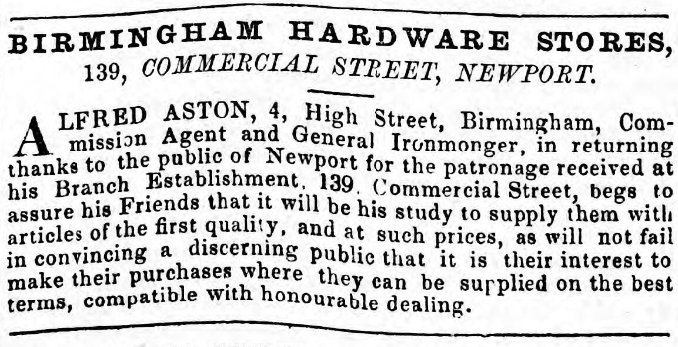

The Russian Gun
Last week I posted about the Russian Gun in the Cattle Market and where it should be moved to. That article was published in October 1858 and the below was a discussion by the Newport Watch Committee in September 1858.
Mr. Brown: Is Mr. Cornelius Evans waiting for his account for the sale of the Russian gun ? (Laughter)
Mr. Townsend: Is there any truth in the report which has been fired from a better gun? I have heard, but whether it is true or not I cannot say, that the Duke of Beaufort is about to extend the present market.
Mr. Sheppard: I have heard of it, too. Mr. Hooper the London agent of the Duke was down here a few days ago, and I have heard that it is in contemplation to extend the market.
The Mayor: To extend the market?
Mr. Townsend: Yes; to carry it out on a fine scale-out to the Post-office.
Mr. Brown: I took the liberty of speaking to Mr. Wyatt, upon my own responsibility, some few weeks ago. I told him how the town required a market house, that it was not in a position to spend much money, but that if the duke were not willing to do so, we must take the matter in hand, because we should be forced to it. Mr. Wyatt did not give me any notion at all that the duke was going to do anything of the kind, but led on the conversation to something of this sort, as to how the town could become possessed of the duke's interest. I thought that a great difficulty myself. After a while he asked, would it not answer the purpose of the town to purchase the market-tolls?—that would be doing away with the duke's powers and vesting them in the corporation. I closed the conversation something in this way — that it would be better for the duke himself to protect his own interests, by making such a market as the town was entitled to. He promised to mention the matter but I have not heard anything of it since.
Mr. Graham said the new Local Government Act gave abundance of power to corporations with regard to the establishment of markets.
Reverting then to the Russian gun,
The Mayor read a letter, signed H. B. Marriott, sug- gesting that the gun should be placed in either of two positions opposite the King William the Fourth.
Mr. Townsend: With all due submission, I think the best use it can be devoted to is to set it to work, and knock down all the beerhouses in Newport.
Mr. Moore: Hear, hear.
Mr. Sheppard: So that they may be made into respectable places?
Mr. Townsend: No, send them all to the devil.
Mr. Davies, amid some laughter, expressed his belief that Mr. Townsend had signed the pledge lately.
Mr. Brown: But I ask seriously what is intended to be done with the gun?
The Mayor: We have to determine upon a site for it.
Mr. Moore thought the Cemetery a very improper place for the gun.
The Mayor coincided.
Mr. Brown considered it a most eligible situation.
Mr. Sheppard said it had been suggested whether the gun might not be placed just inside the gates of St. Woolos churchyard. No burials now took place there, and consequently no inconvenience would occur.
Mr. Townsend: It might be effectually placed there, and with it we might drive any privateer that attempted to come up the river to old Harry.
Mr. Sheppard hoped that whatever place should be selected, the gun would be creditably disposed of and properly railed in.
Mr. Brown thought something should emanate from the Mayor.
Mr. Townsend: Oh, instruct Palmer at once to get it put under the earth. (Laughter.)
The Mayor: Supposing an arrangement were made with Sir Charles Morgan's agent, would it be satisfactory to place it in Park-square?
Mr. Sheppard understood that the centre of the square was to be planted and railed in. If the gun were placed within the enclosure, the public might be deprived of the close inspection of what must always be to them a matter of deep interest.
The Mayor could not help thinking such a trophy ought to be preserved, but still not put out of the way of the public.
Mr. Knapp would place it where all the little children might see and pat it. Mr. Brown suggested that information should be obtained as to the best mode of mounting and preserving the gun.
Ultimately, the Mayor promised to communicate with Sir Charles Morgan's agents as to fixing upon Park-place as the site, intimating that when that point should be settled, the carriage and fittings could be considered.
– Monmouthshire Merlin, Saturday 18th September, 1858

'An Inspector's Report, January 1859'
"Since my last report I have registered one lodging-house in Pentonville. I have to report that Mr. Samuel Goss has erected a building on the Llanarth-wharf, near the New-dock, for melting tallow, &c. I do not consider it a nuisance, there being no inhabited dwellings near. I have served several notices for the removal of nuisances; some have been complied with, and others are doing so. I have to call your attention to the very filthy state of Windmill-street and Granville-street, which, in their present state, I consider dangerous to the public health. The scarlet and typhus fevers are still very bad in different parts of the town, and I think worse than when I last reported."
Mr. TOWNSEND asked, did the Inspector mean to say, that the smell of the melting tallow and oil, would not leave the building, now in course of erection by Mr. Goss, on the Llanarth-wharf?
He (Mr. Townsend) once knew a tallow-chandler who could never eat his breakfast until he had been to the boiling-house and taken a sniff. (Laughter.)
From his own experience he knew the boiling of tallow and oil would be a nuisance, and he thought it would be a proper proceeding of the Board to forbid the erection of the building for that purpose.
Mr. MOORE called attention to the fearful state of mortality in the town, which, compared to Cardiff and other towns, was greatly in excess of percentage, which, as Newport had formerly been one of the healthiest towns in the country, he attributed, mainly, to the protracted manner with which the drainage works had been carried out, and the effluvia emitted from the open sewers. He thought it a matter for the serious consideration of the Board of Health.
— The Cardiff Times, Saturday 8th January, 1859


Pocket Picking in the Market
Herbert Glenroy, a travelling pickpocket, was brought up under the following circumstances:— Ann Lawrence, wife of James Lawrence, who keeps the Commercial beerhouse, deposed: I was in the Newport vegetable market on Saturday morning about 11 o'clock I had my purse in my right hand frock pocket, with 10 sovs. in gold, and 20s. in silver, besides a crooked sixpence; I had not been in the market ten minutes before I missed my purse and money; the purse produced is mine, the money being correct and the crooked sixpence.—James Blakemore deposed to seeing the prisoner pick the prosecutrix's pocket.-P.C. Haines, from information received, followed, and shortly after apprehended the prisoner, who had made his way to Baneswell; upon his person the purse and money were found.—Upon pleading guilty, the prisoner was sentenced to six months' hard labour.
— Monmouthshire Merlin, Saturday 4th September, 1858
Leaving a Wife
Patrick Maher was charged with leaving his wife chargeable to the parish of St. Woolos. His wife and three children, it appeared, bad been a burden upon the parish for the last nine months. The parish officer had been looking out for him, but unsuccessfully, until he was taken up for drunkenness the previous night. He was sent to prison for three months' hard labour as a rogue and vagabond.
— Monmouthshire Merlin, Saturday 4th September, 1858
Publicans' Offences
The following cases were heard, all occurring last Sunday morning:
Luke Williams, landlord of the Queen Adelaide, Griffin-street, was charged with selling beer during proscribed hours on Sunday last. The offence was committed both in the morning and afternoon. This being an old offender, he was fined 40s. and costs.
Evan Williams, of the Dovey Castle, Cross-street, was similarly charged. Inspector Williams and Sergeant Wilcox saw two men coming in the passage, and on the table were marks of beer, aud a cup was found containing beer. The defendant said the beer had been left in the jugs since Saturday. Fined 10s. and costs.
Ann Valender, Princess Royal, Commercial-street, pleaded guilty to selling beer to four men on Sunday morning. Fined 10s. and costs.
Osmond Powell, White Hart, Tredegar-street, was charged by Inspector Williams with the same offence, He saw two men with a pint of beer before them. Defendant's wife pleaded that the men worked for her. Superintendent Huxtable said that the house was generally fairly conducted. Fined 5s. and costs.
John Bennett, of the Daniel O'Connell, Mellon-street, pleaded guilty to a similar charge. Fined 10s. and costs.
Ann Anderson, of the Erin-go-Bragh, was found on her door step, "as usual, as a sentry," on Sunday morning, and six men were in the house drinking beer. Defendant first pleaded not guilty, but involuntarily exclaimed while Inspector Williams was giving his evidence, There were only five in the house!" Superintendent Huxtable said it was the worst house in town, and he had no doubt a barrel of beer was drawn there every Sunday. It was a very bad house. Fined 40s. and costs.
James Cavil, of the Rising Sun, was also found by Sergeant Wilcox supplying beer to two men. Defendant said the men asserted that they were travellers, and he could not refuse them. Fined 20s. and costs.
Morgan Rees, Avon Packet Tavern, was visited by Inspector Williams on the same morning, at ten o'clock. He found in a back kitchen of the next house six men drinking beer and playing cards. The Inspector asked Rees whether he supplied the beer, but he denied all knowledge of it. Two men who were in the place were summoned as witnesses, but neither of them could prove where the beer came from. The case was dismissed.
The Bench expressed regret that so many of these cases should have occurred in one day.
— Monmouthshire Merlin, Saturday 11th September, 1858
'Tee-Totaller who Awards Efforts with a Pint, Arrested for Being Drunk and Disorderly"
Thomas Jones, a shoemaker, who indulges in teetotalism now and then, and treats his resolution with an extra pint occasionally, in consequence, was to-day charged with being drunk and disorderly, at about two o'clock this morning. PC Jenkins proved the case, but showed that Jones was no longer unruly, when a finger of the law was laid upon him. Ordered to pay 1s fees.
— Monmouthshire Merlin, Saturday 16th May, 1851
"Interesting Looking Girl Charged with Stealing a Shawl"
Norah Sullivan, an interesting-looking girl, was charged with stealing a shawl, the property of T. Watkisn, who did not appear to prosecute; and the prisoner, being kindly cautioned by his worship to avoid bad conduct in future, was then discharged.
— Monmouthshire Merlin, Saturday 16th May, 1851
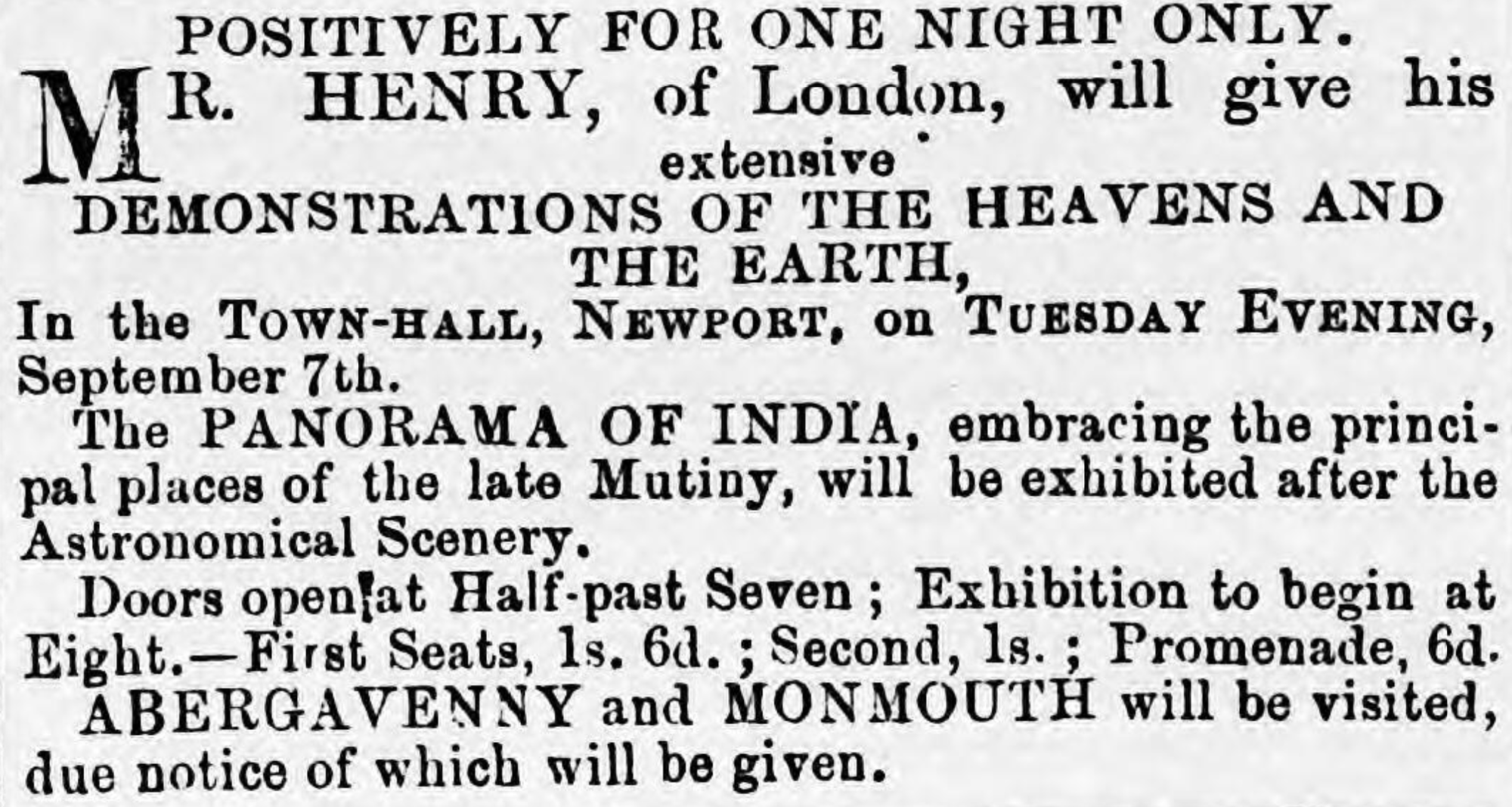
Rook Shooting
This sport was commenced at Tredegar Park yesterday; and, we understand that immense numbers of the "game" were slaughtered by gentlemen of Newport. This day (Friday) the black gentry of the Ruperra rookery was devoted to the murderous fire of scores of Mantons.

— Monmouthshire Merlin, Saturday 16th May, 1851


Immense Broccoli
A broccoli was brought to our office this week, weighing about twenty pounds. The monster was grown by Mr Wm. Francis, of Penybank, near Caerleon, who has several of the same size still in the ground, some of which he purposes exhibiting. as "extra stock," at the forthcoming Newport Horticultural Show.
— Monmouthshire Merlin, Saturday 16th May, 1851

‘Greatest Ventriloquist in Europe’
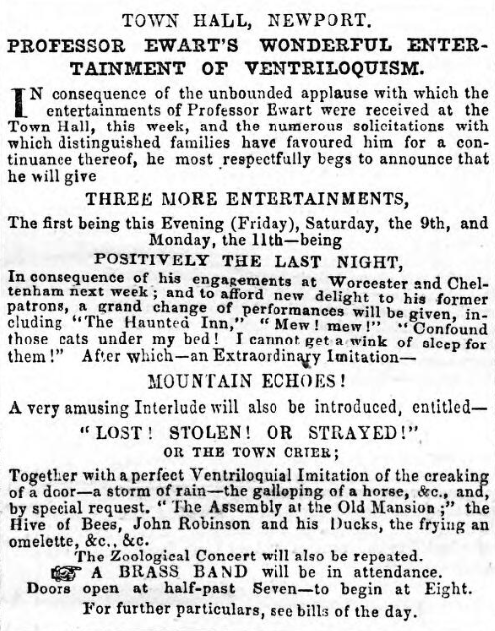
Billed as the ‘Greatest Ventriloquist in Europe’, Professor Ewart visited Newport in 1853 for a performance which included 'the creaking of a door', 'a storm of rain', 'the galloping of a horse' and (by special request) 'the frying an omlette'.

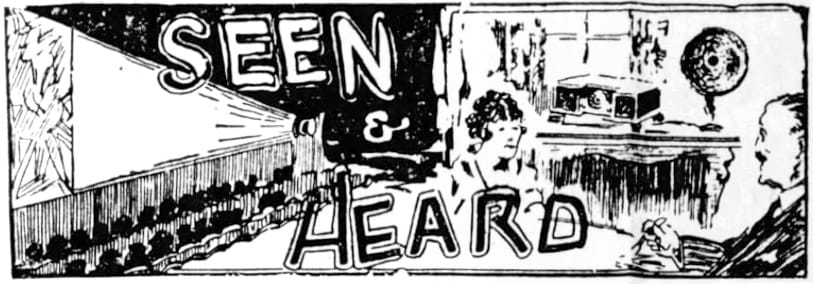
"A Double Rainbow!"
So much beauty of colour is seldom seen in the sky after a day of storms as appeared over Newport on Friday afternoon. Two rainbows spanned the sky at once. The primary bow was wonderfully rich in colour and breadth — the purple band being repeated three times — and the secondary bow was quite as brilliant as the ordinary single bow with which we are familiar. The duration of the phenomenon was also unusual, and many were the watchers of the evanescent loveliness.
— South Wales Argus, Saturday 12th September, 1908
"Picking up a Sixpence"
"At last," said the tram conductor, as he jumped from the car. Stooping down he picked up a sixpence from the roadway, and gleefully returned to his duties. "I've passed that time after time," he explained, "but this is the first time we have stopped here, and its marvellous no one picked it up before." Scores, if not hundreds, of people must have walked over and around the coin, at this particular spot in Corporation-road, but evidently "the man with the muck rake" had not passed that way.
— South Wales Argus, Saturday 12th September, 1908

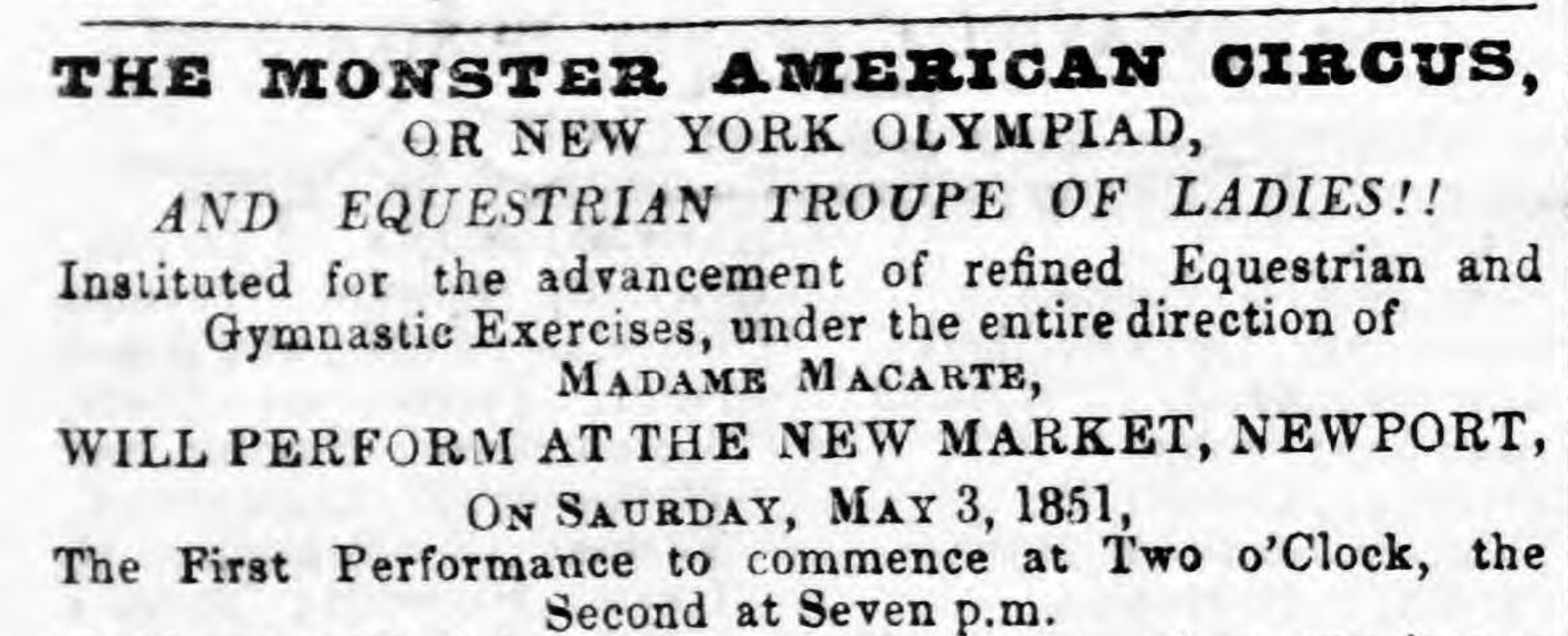
The Monster American Circus, or New York Olympiad and Equestrian Troupe of Ladies!!
Madame Macarte has the honour of announcing to the nobility, gentry, and public in general, that she is about opening a new circus, with one of the most select and vigorous companies and stud, which, in perfect training and beauty of appearance, cannot be rivalled. Madame Macarte is aware of many difficulties she has to encounter in the endeavour to provide new food for the intellectual appetites of an audience lately gratified by the industry and talent of former managers nevertheless, she entertains the most sanguine expectations of success in this her first visit. In these expectations of success, she has been confirmed by her late visits to Bath, Bristol. Exeter, Plymouth, Southampton, Winchester, &c., &c., where the same difficulty was met, and triumphantly overcome; in short, the manageress comes before the public of this district with very peculiar claims upon its patronage and support. She has merely to point to the flattering encomiums of public writers, uniting in the description of the entertainments, as being at once Enchanting to the Eye, and a source of Wonder to the Mind.
Madame M. concludes by intimating, that no expense or attention will be spared in rendering the circus at once a handsome and comfortable structure, and that the entertainments will be further enhanced by the attendance of
FIRST-RATE ORCHESTRAL PERFORMERS,
Led by Mr. R. Holt, from Jullien's Promenade Concerts, Theatre Royaf, Drury Lane, London.
The travelling cortege will enter this town at eleven o'clock a.m., headed by a splendid Band Carriage, drawn by the beautiful Arabian Horses in superb silver-mounted harness followed by the Ladies and Gentlemen of the establishment on Horseback after which the Miniature Dog Cart, drawn by the Two Smallest Ponies in the World; and General Tom Thumb's Carriage, also drawn by the Diminutive Steeds. The whole, combined, will offer to the public one of the best opportunities ever afforded of witnessing a combined display of equestrianism of the highest order, with every other description of circus amusement.
An entire Change of Performance in the Evening. The whole enlivened by the Comic Conceits of the admirable Clowns, Adrian and Crowhurst.
Sole Proprietor, Mr. J. MACARTE. Prices of Admission: First-class Seats, 2s.; Second ditto, 1s.; Promenade, 6d. Children under ten, and Schools, admitted at Half-price to the First and Second Seats. No Half-price to Promenade.
— Monmouthshire Merlin, Saturday 2nd May, 1851

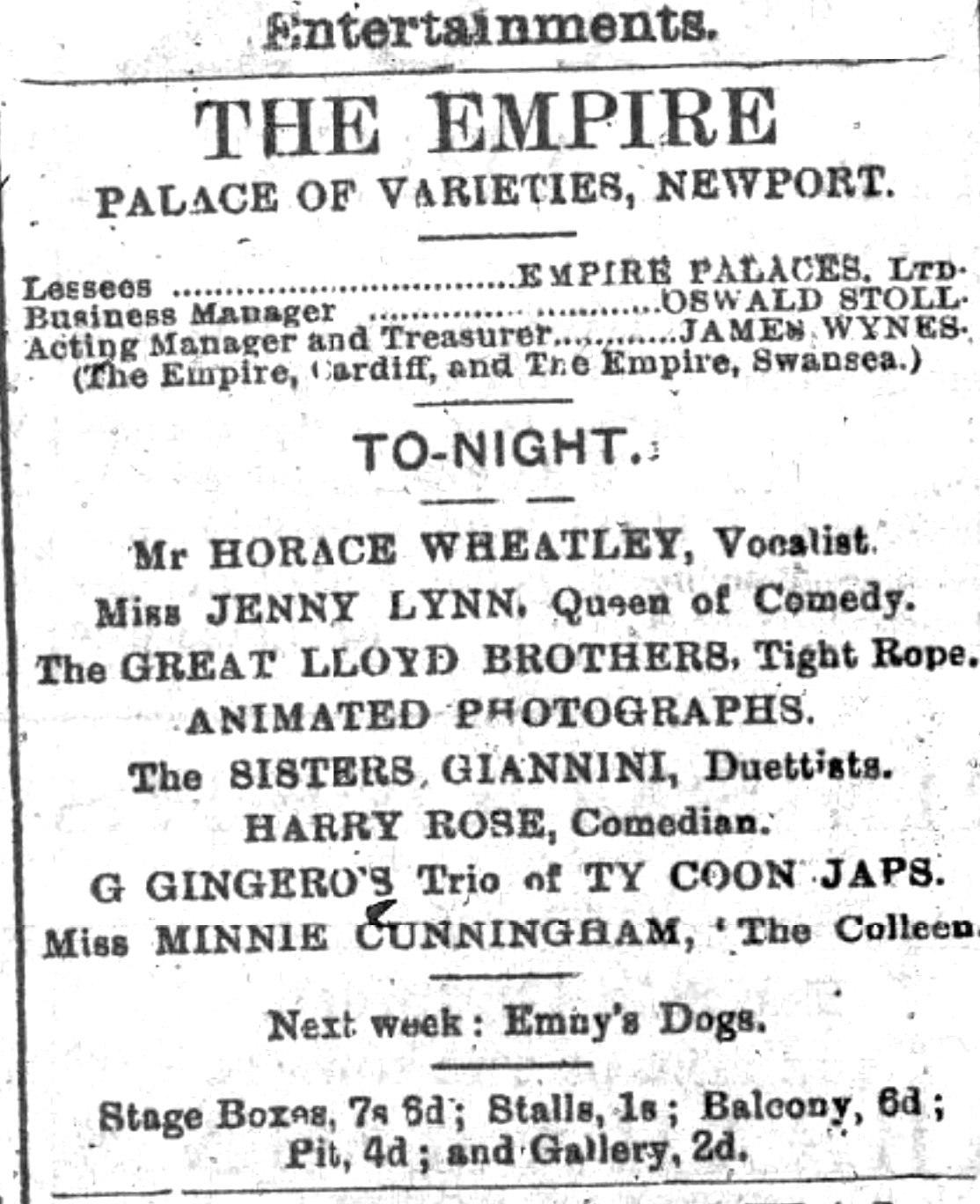
The Empire, Newport
The quality of the entertainment provided at the Newport Empire shows no sign of falling off. Miss Minnie Cunningham, one of the sweetest little artistes on the stage, comes to charm her audience with song and dance. Her song 'Rain v Gamp' is identical in style to the one she gave on her last visit. 'You can't judge cigars by the picture on the box,' and is rendered with the same charm of expression. But it is in 'The Irish Serenade' that Miss Cunningham scores for her acting is so perfect, and her manner so irresistible, that — well, every single young fellow in the audience wishes he were the lucky Irishman who successfully woos her. In reply to an encore last evening Miss Cunningham gave one of her delightful dances, which was heartily applauded.
— South Wales Argus, Tuesday 10th November, 1896 (Subscription Required)





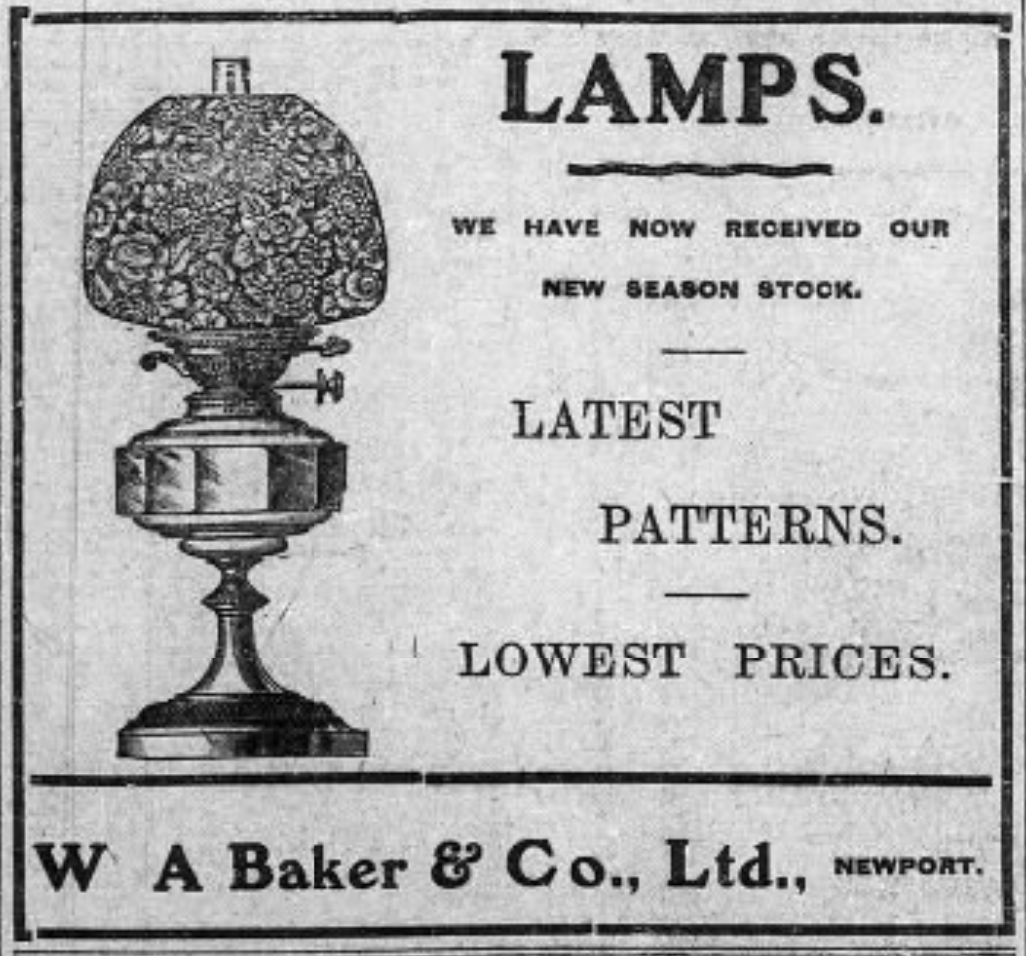
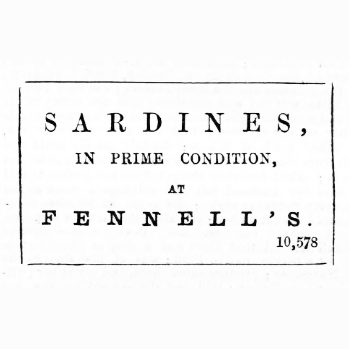
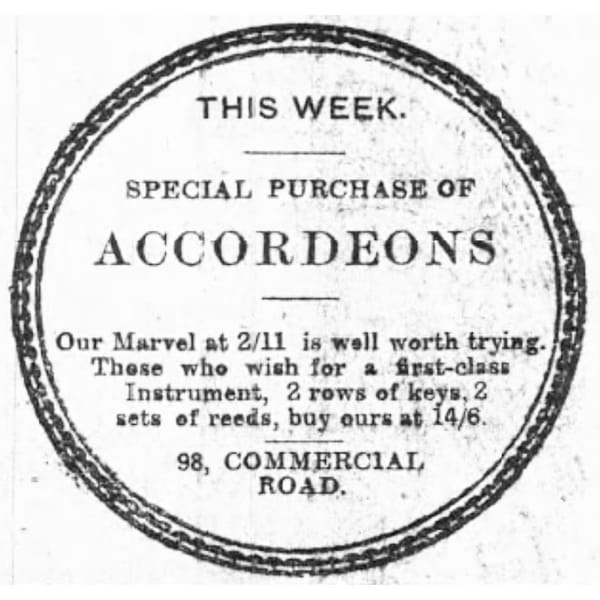

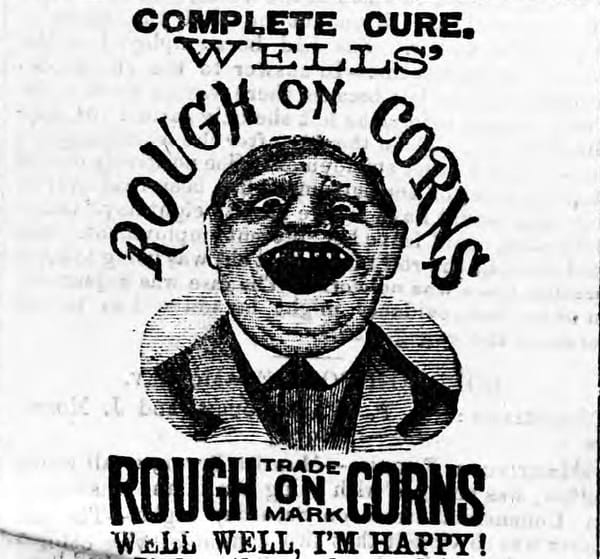
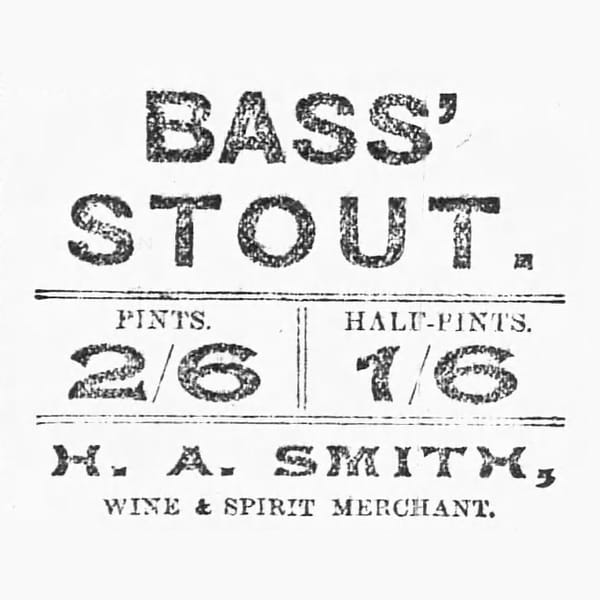
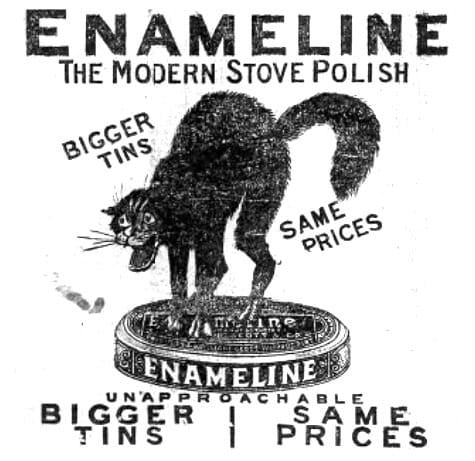
Member discussion